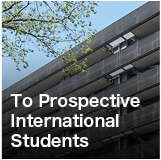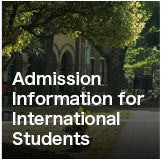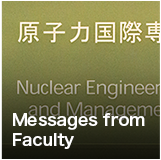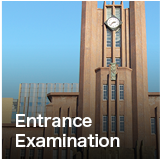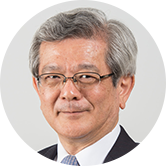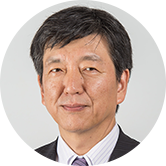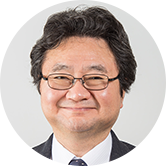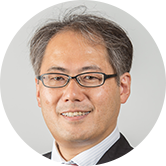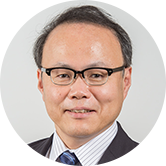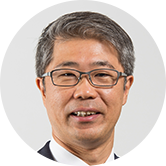- HOME
- For Prospective Students
- Study at the Department of Nuclear Engineering and Management
- Professor Naoto SEKIMURA
Naoto SEKIMURA Professor
Study01
To continuously create new knowledge and utilize it for further safety becomes the definition of safety.
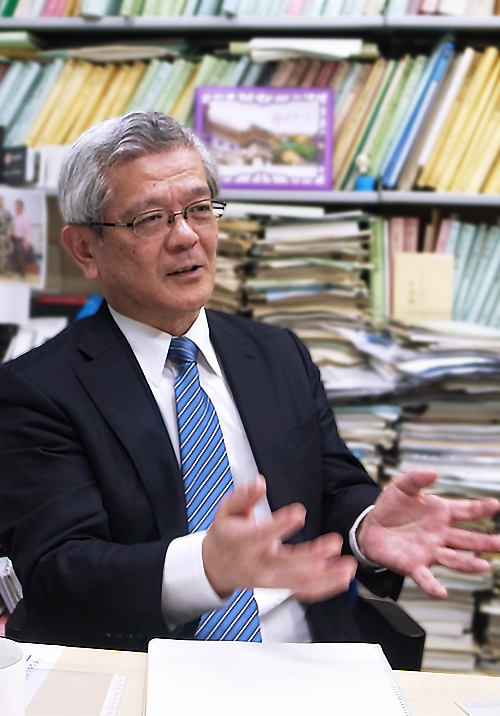
Which areas of nuclear power can students learn in your laboratory?
The specialization of my laboratory is nuclear safety. Initially, the research theme was (nuclear) material. However, to have concrete progress, one must pay attention not only to producing high-quality objects but also to how they could be used and what one must be careful about when producing and using them. It is also necessary to understand under which situations these objects become unusable. The operation limit standard of a nuclear power station is 100 years in the United States and 40 years in Japan. To create the knowledge base of the world, our research team is conducting the standardization of academic societies as a project with the International Atomic Energy Agency (IAEA). In Japan, there are no current plans for constructing a new nuclear power station. However, there are nuclear power needs outside Japan, so there is still a demand for safer power stations. For such projects, it is also important to enable Japanese people to communicate well when they are abroad. The most important elements are how people think and act when the producer says it is safe and what type of process is required for appropriate decision making. At a power station, a culture of organization is necessary, and those involved must be dedicated to constantly improving the safety. Safety cannot be achieved only by exceeding a previously set level. Instead, safety is defined by the constant generation of new knowledge and its utilization for further safety. The currently emerging consensus is that the safety standards cannot be set at the time of production but instead must be constantly updated.
What types of future paths (career) are there for your students after their study?
In the short-term, students may feel anxious because the types of career choices they will have are not immediately apparent. If one is studying nuclear power, an option is to be involved in nuclear power station construction outside Japan. When involved in such an enterprise, it is imperative to be conscious that one is building a facility that might be used for 40 years, 60 years, or a century. Thus, it is important to always understand the importance of proper maintenance of whatever one is about to produce. I would like my students to have a long-term perspective instead of being focused only on the present and to engage with projects with the premise that there are many complex systems and things they cannot yet understand. I believe that to continuously improve safety, one must work with the premise that they must take what cannot yet be seen into consideration as well.
Could you tell us what you think are the attractive aspects of the Department of Nuclear Engineering and Management?
At engineering departments, their studies are divided into narrow specialties where students focus on the subjects they want to specialize in. On the contrary, one can engage with many subjects in the field of nuclear power. One can study the cutting-edge developments in mechanics, science, materials, systems, calculation, and simulation, and experiments can be conducted with large equipment. Moreover, nuclear power is connected to every aspect of the world. Safety, of course, but also security and political science, and its realization requires dialog or collaboration with people in the fields of philosophy, sociology, medicine, pharmaceutics, agricultural science, and law. It also requires the knowledge of the science department and the design of the engineering department. Furthermore, an ability to imagine how nuclear power is used and how its users will feel is also important. This field is expansive horizontally, yet it has depth. I believe that a student who has a flexible mind and is interested in everything will enjoy studying in this department.
Could you give us a message for prospective students?
Among the 18 engineering departments, only three conduct their lectures entirely in English. Thus, it is recommended for students who want to be globally active in the future. One can give birth to new ideas by being stimulated by peers who have different ways of thinking or who grew up in other cultures. The three keywords that form the core of this department are excellence, diversity, and mobility. The Department of Nuclear Engineering and Management is a place for nurturing the abilities that will form your core. You’ll be able to have discussions with excellent teachers, and there are many opportunities to spend time abroad. Our lectures are structured in such a way that students conduct them together through discussions instead of passively receiving information from us. Let’s think and progress together.


